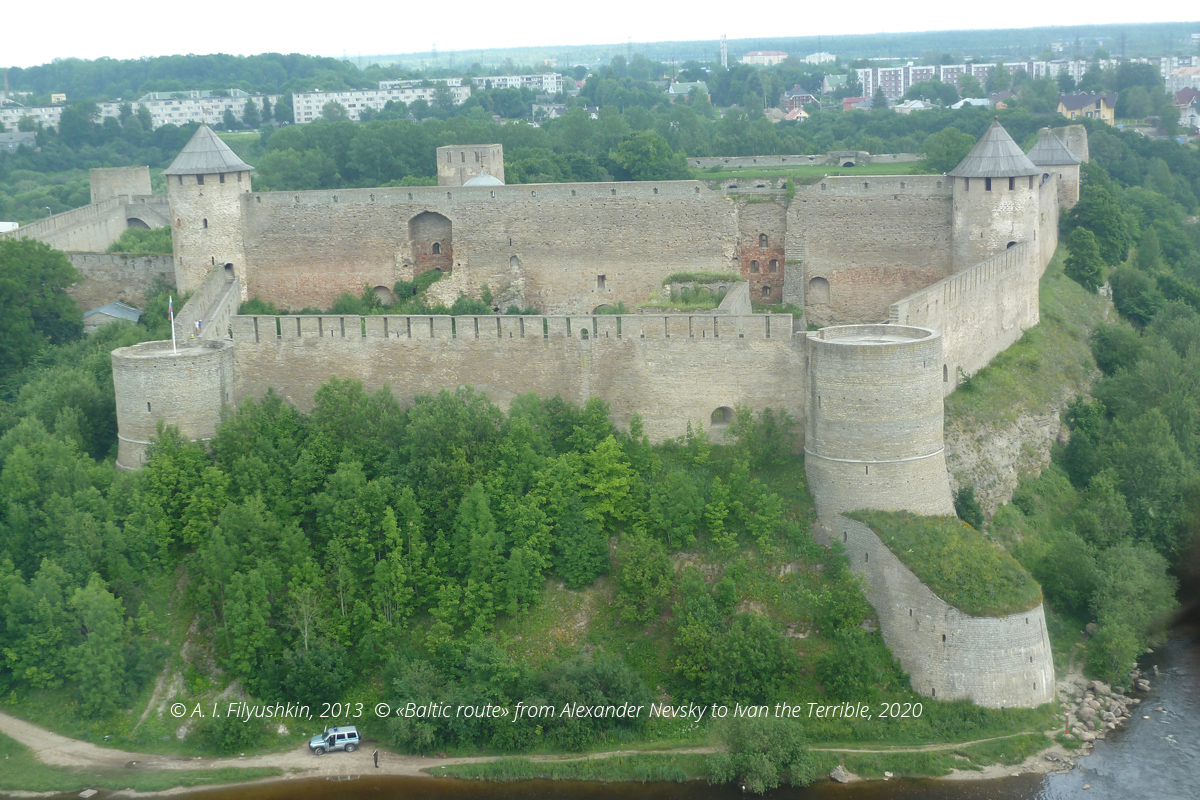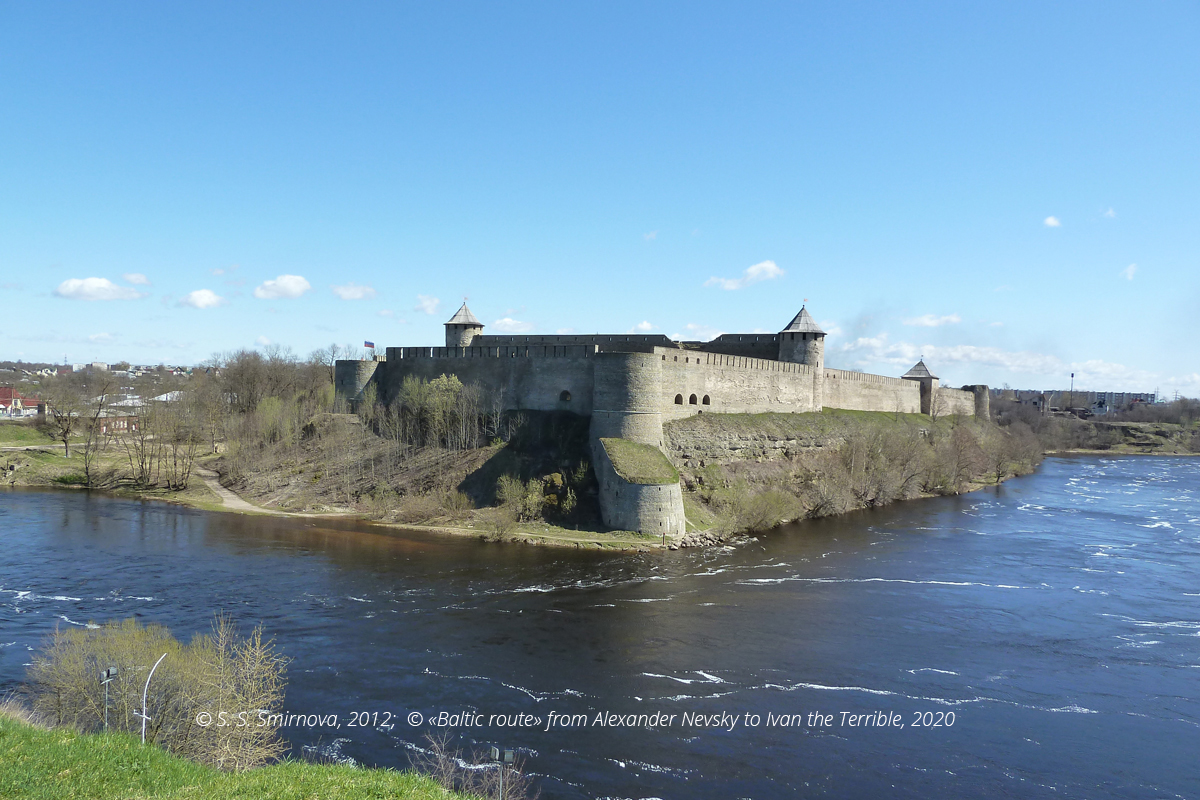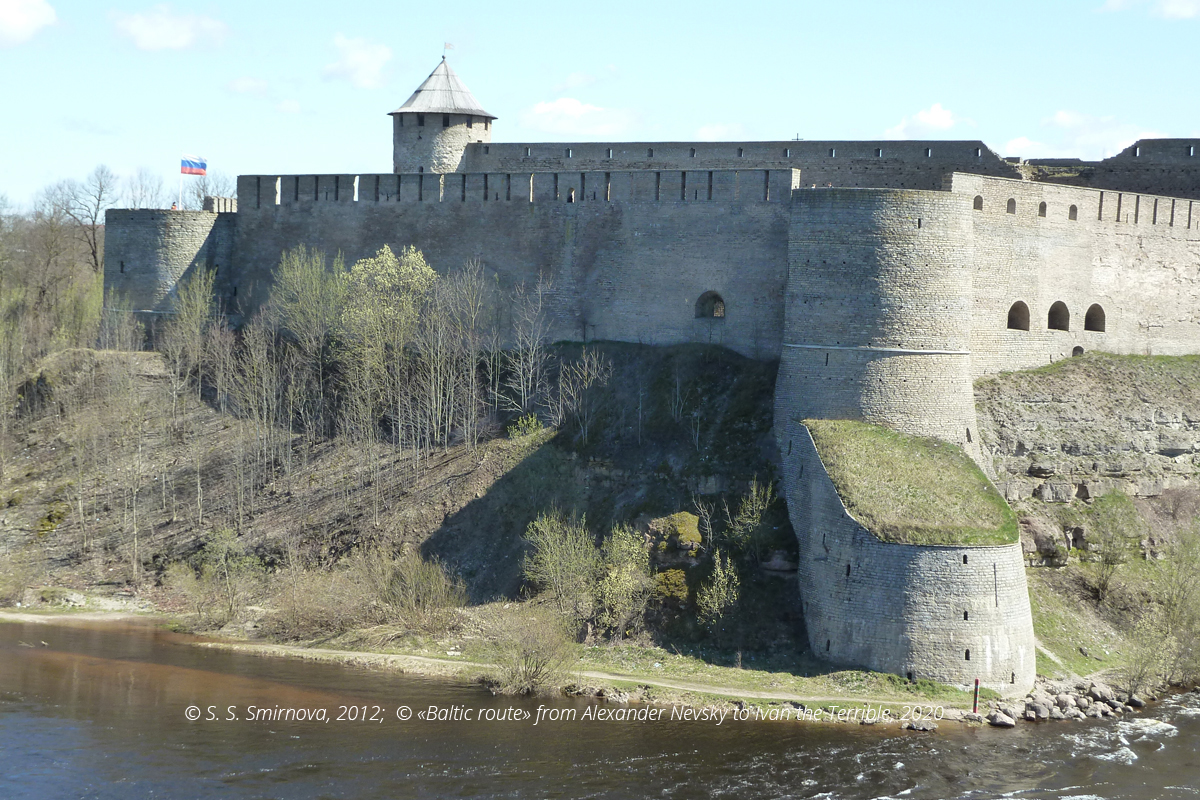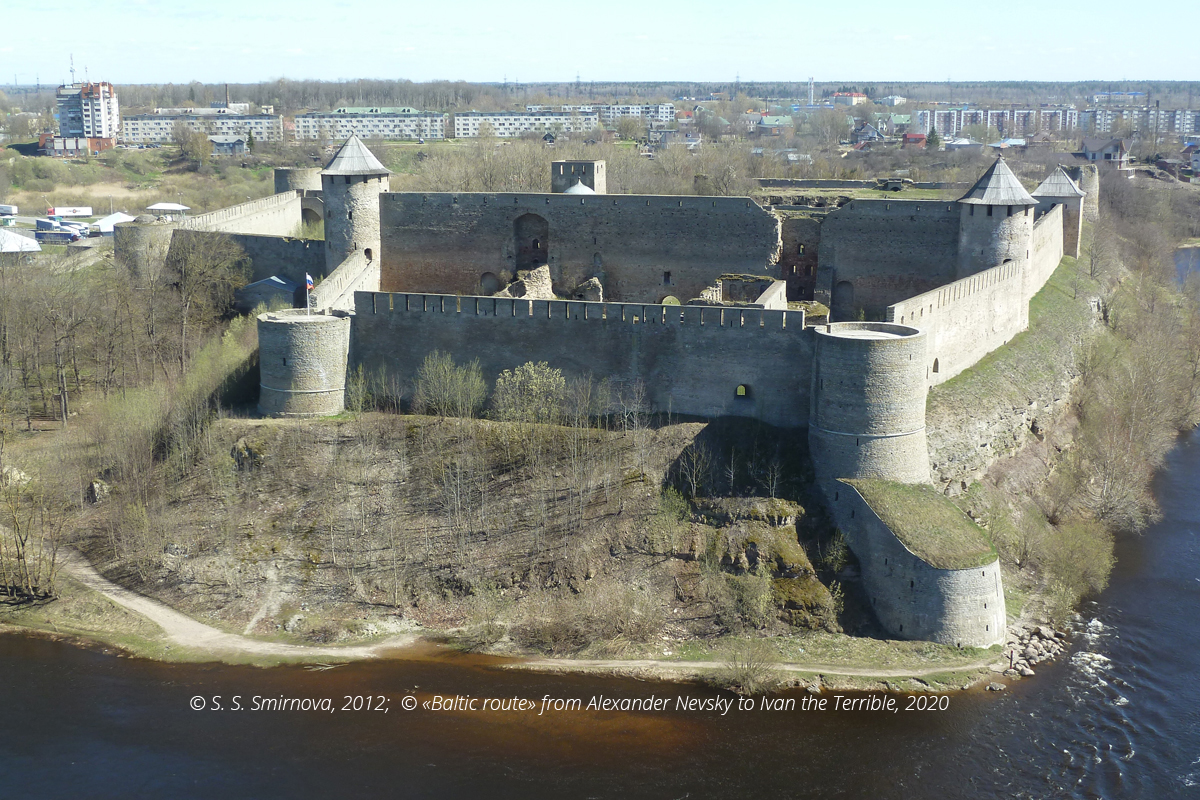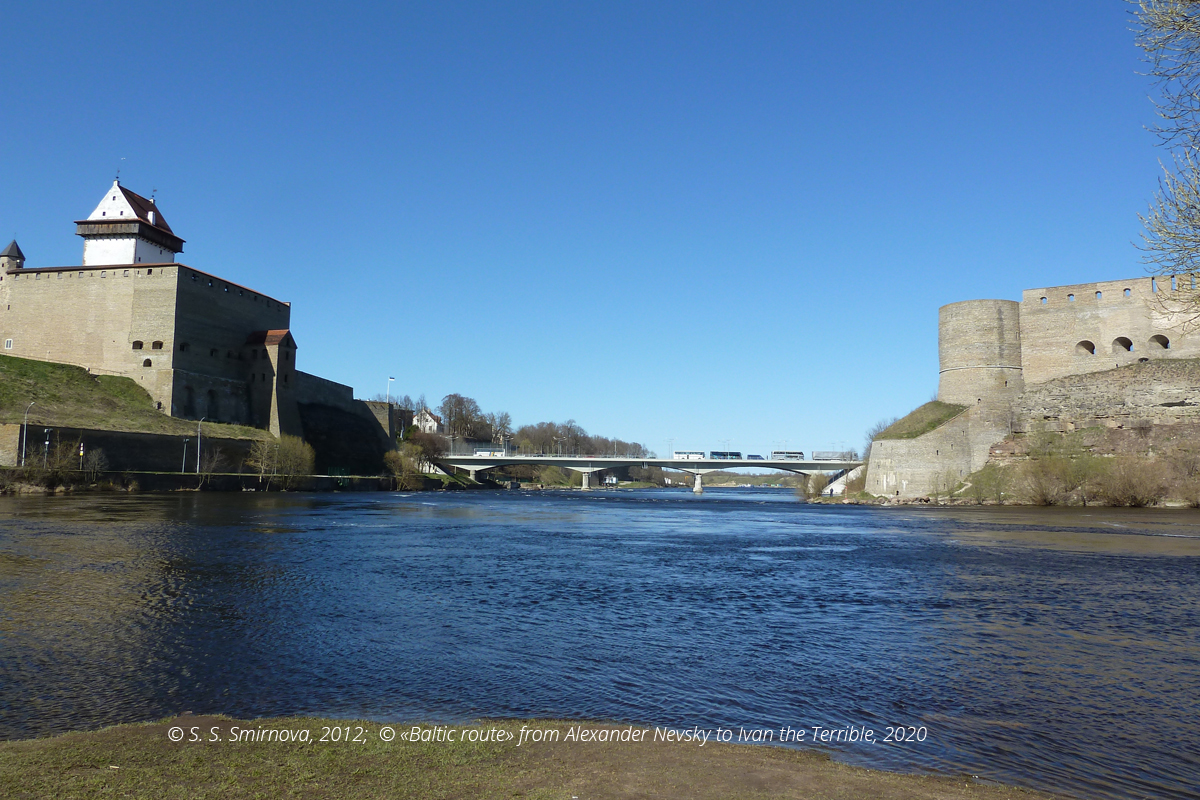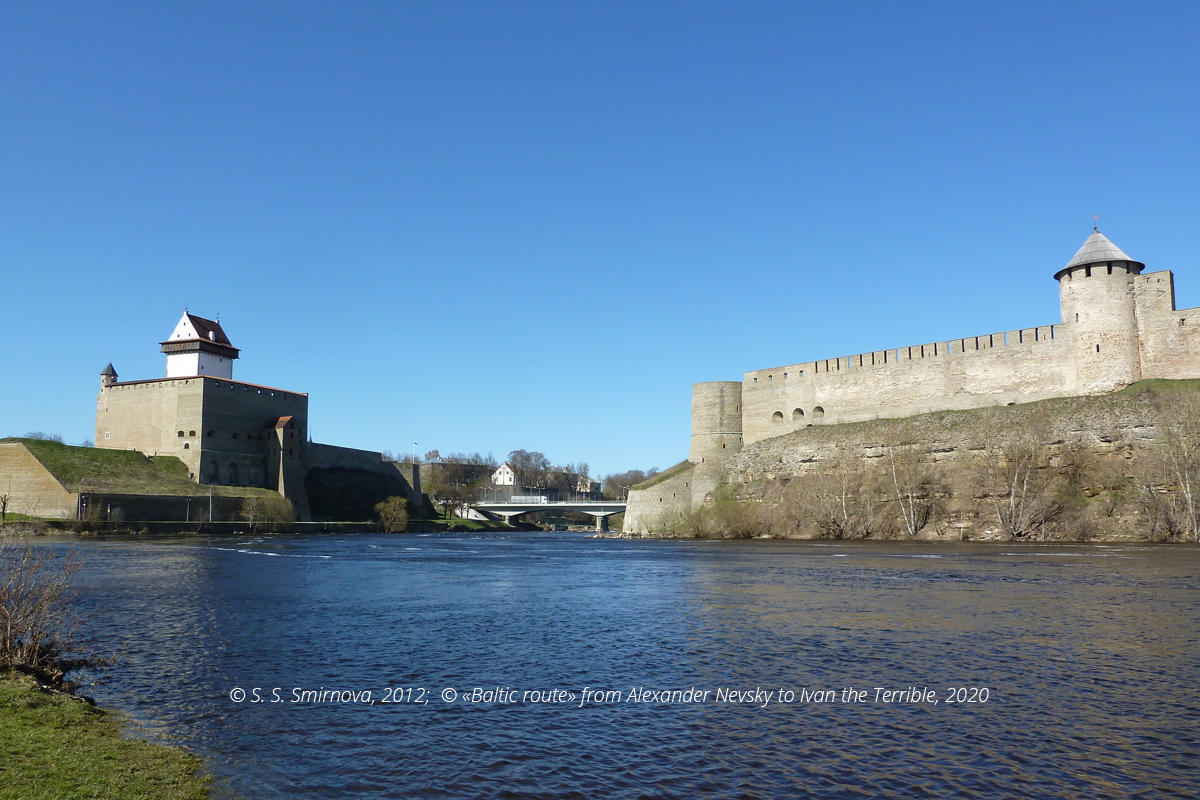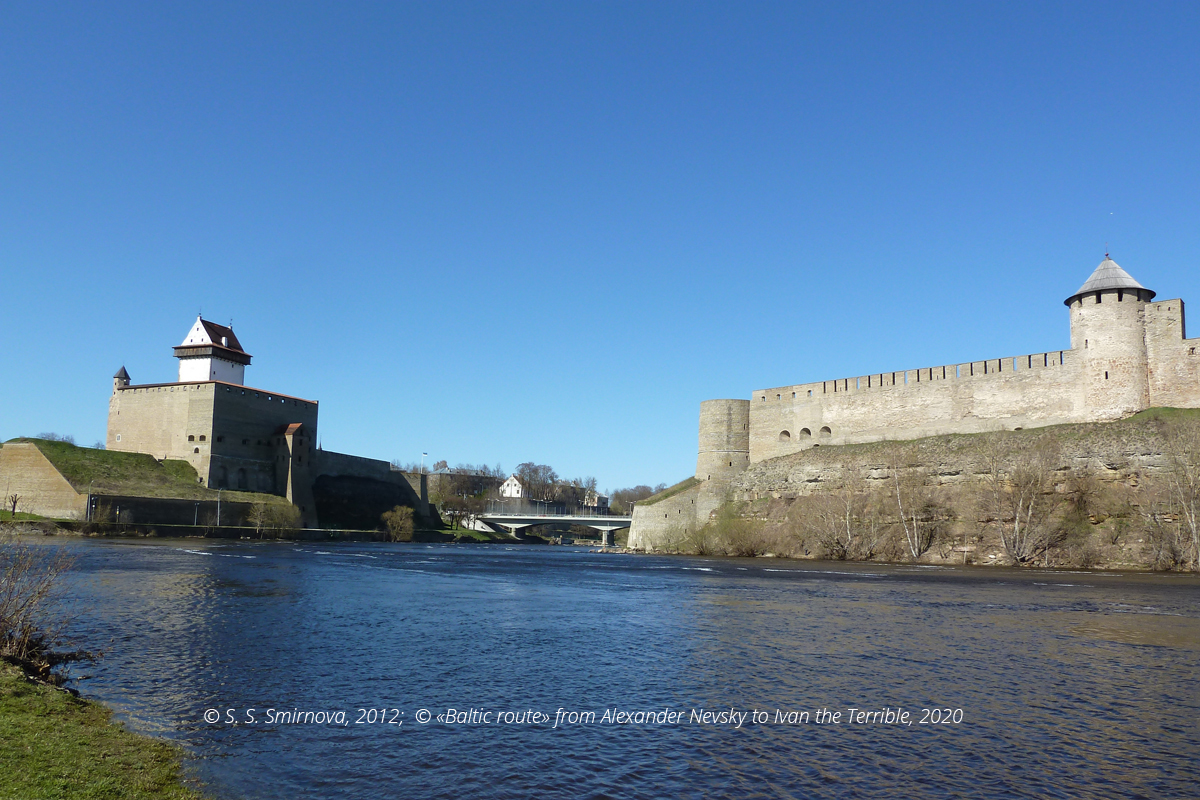Ivangorod
59 ° 22'29 ″ N. 28 ° 12'28 " E.
Ivangorod was founded in 1492 as the westernmost outpost of the Russian state. Initially, the fortress was a small quadrangular castle (its base was uncovered by archaeologists). In 1496 the Swedes took the fortress, tried to transfer it to the Livonian Order, but retreated when the Russian troops approached. The fortifications were restored and expanded (later this extension would be called the Big Boyar City). In 1502, the renovated fortress repelled the siege of the troops of the Livonian Order. In 1507-1509 the construction of the fortress continued, new fortifications were erected (the Castle and the Front City). in 1558 the last part, Boyarsky Val, was completed.
The problem of Ivangorod was its low location compared to neighboring Narva - the Narva gun tower Long German actually dominated the area, and could cover Ivangorod with fire from above. Ivangorod performed mainly the functions of a military fortress, although through it at the beginning of the 16th century there was trade with Livonia. Despite the same geographical position with Narva (they are separated by the Narova River, several tens of meters), a large ship port for sea ships did not arise in Ivangorod.
In 1558, on May 11, Narva was taken from Ivangorod by a swift attack. After that, until 1581, Narva and Ivangorod, in fact, constituted a single whole. In 1581 the Ivangorod was taken by the Swedes, recaptured from them in 1591, in 1612 it was again lost and, according to the Stolbovo Peace Treaty of 1617, became part of the Kingdom of Sweden. The city was returned to Russia in 1704 after the capture of Narva by the troops of Peter I.
Photos
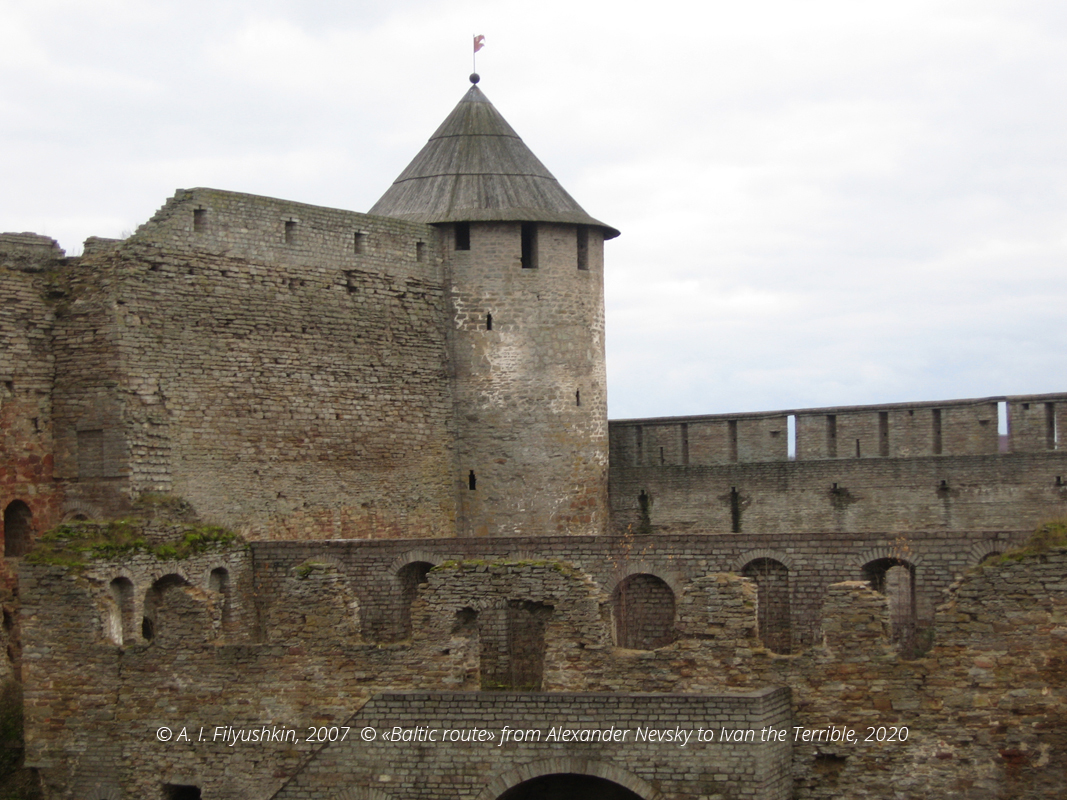
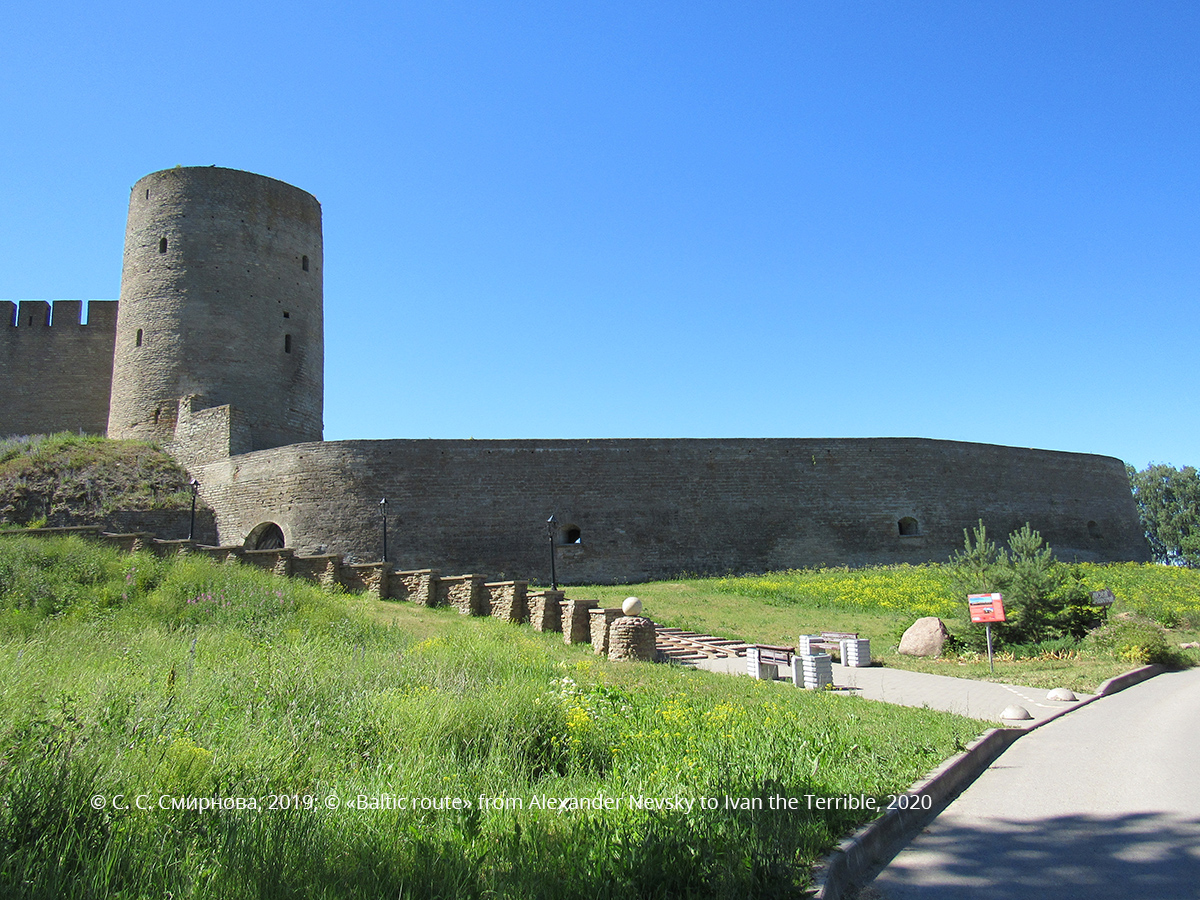
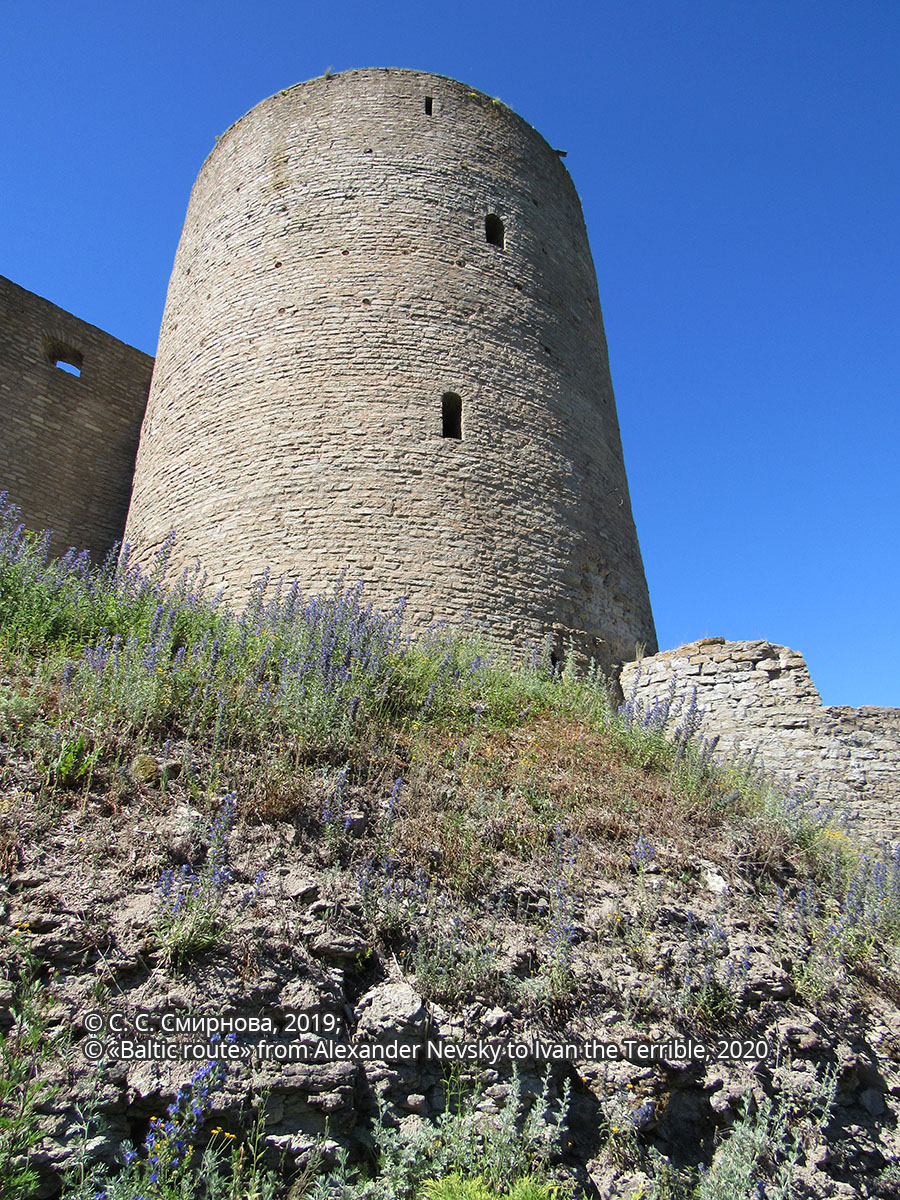

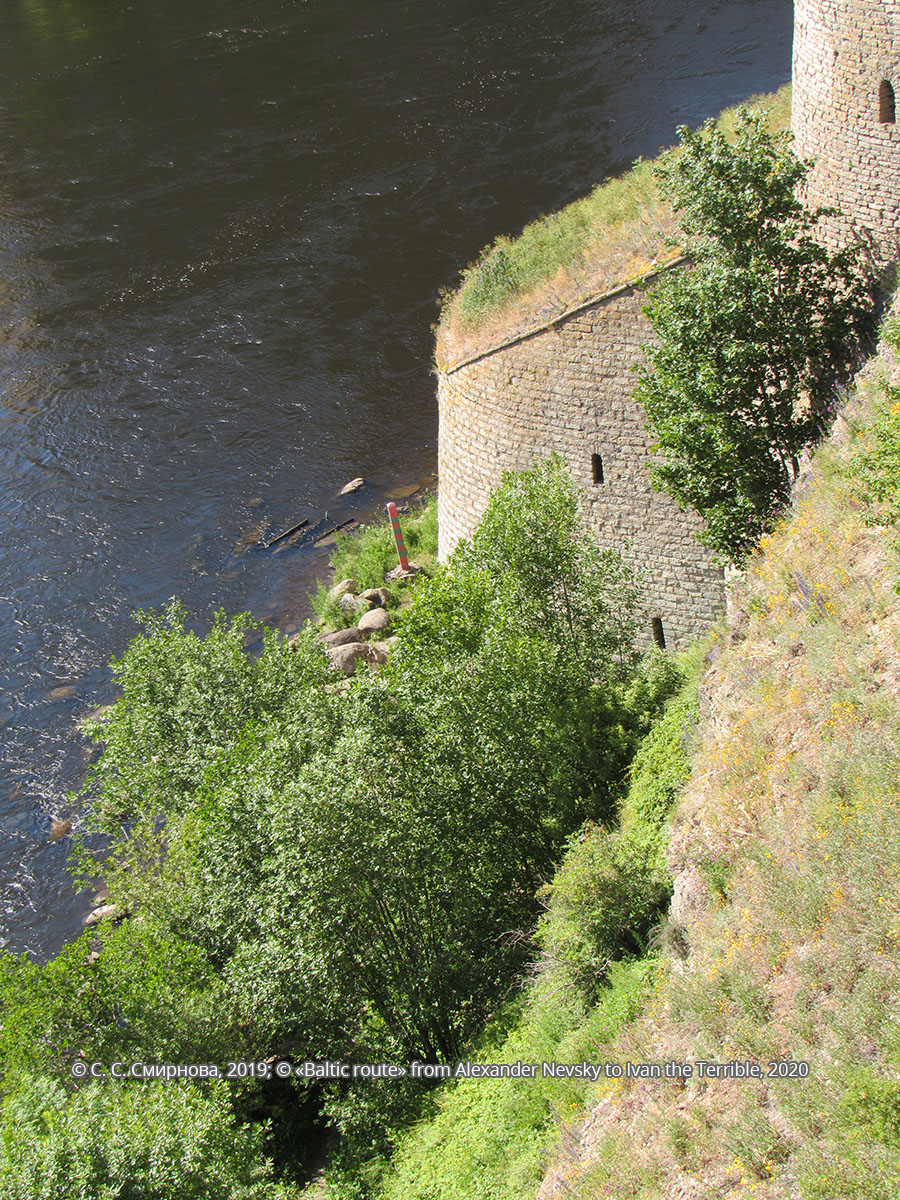
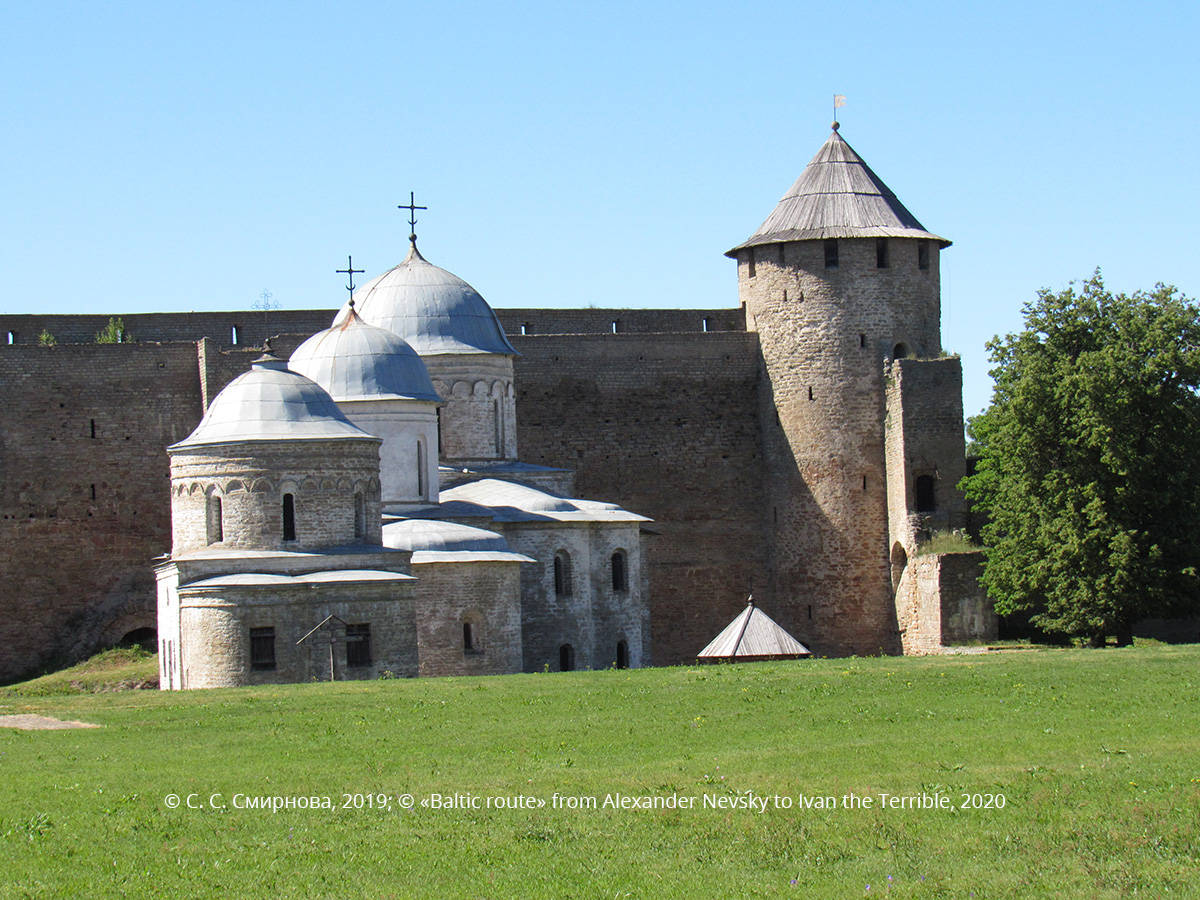
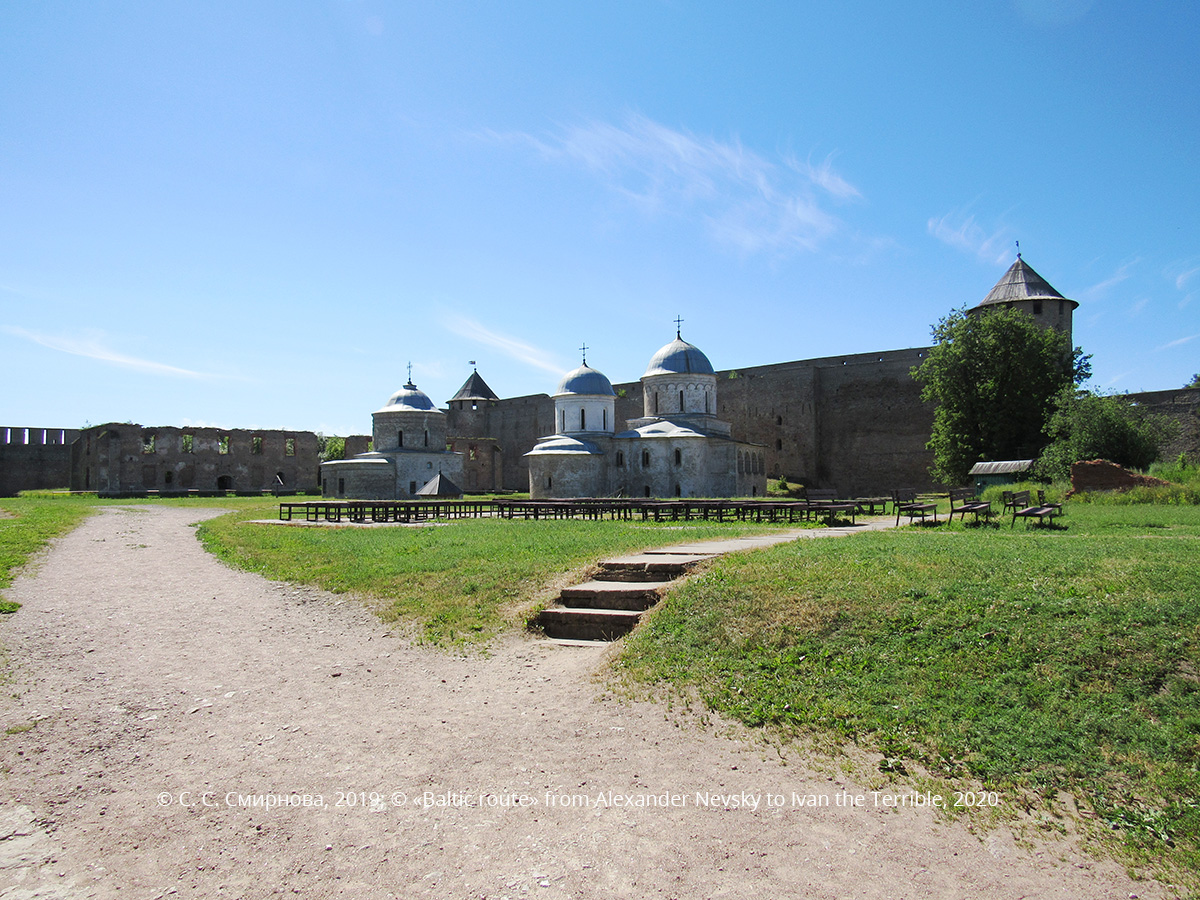
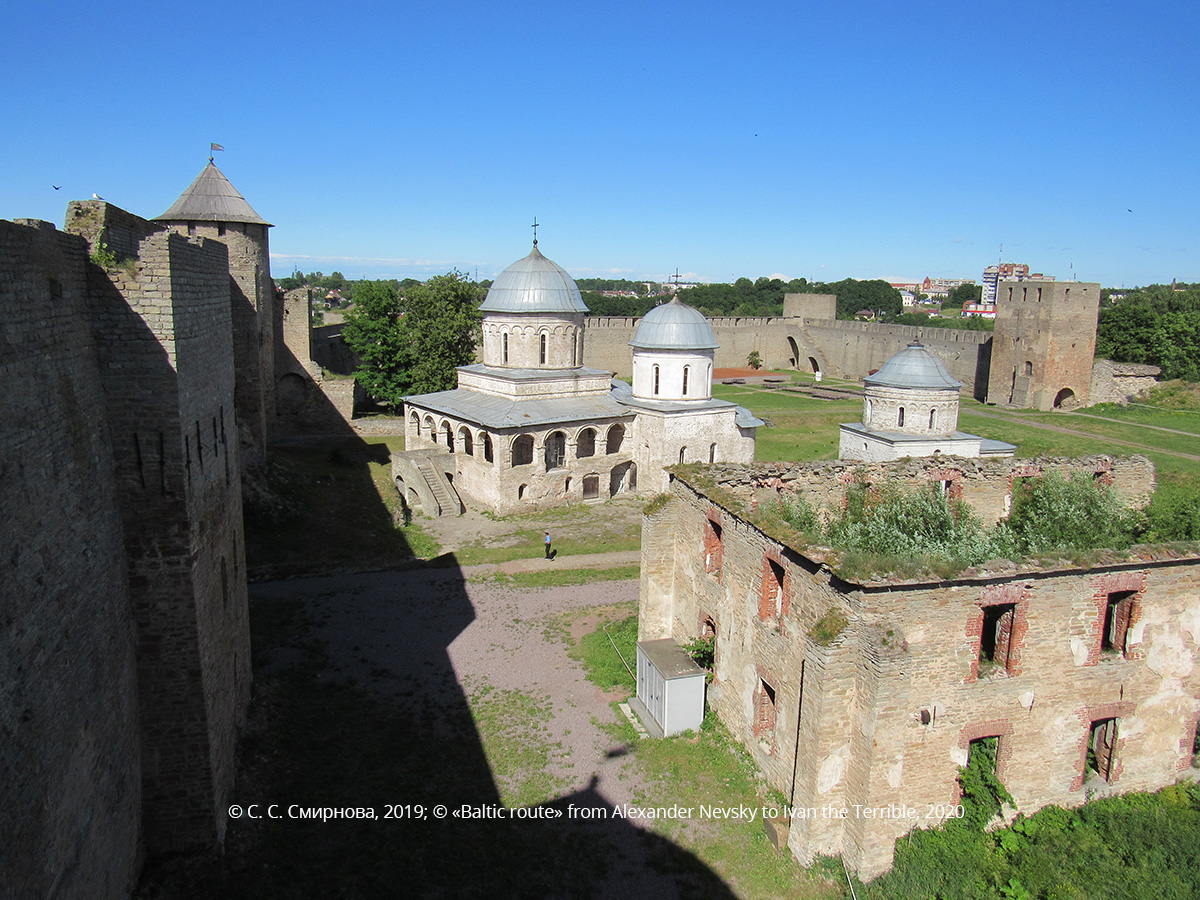
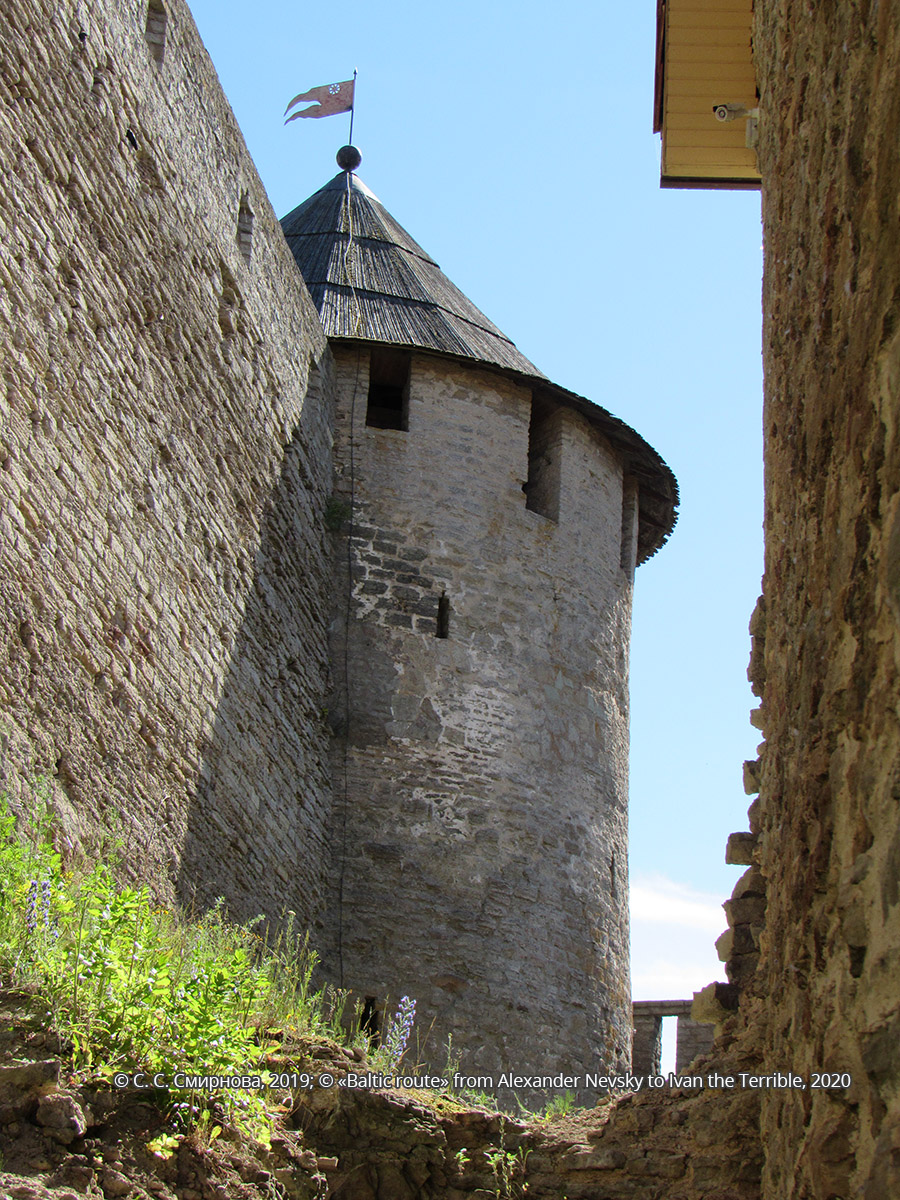
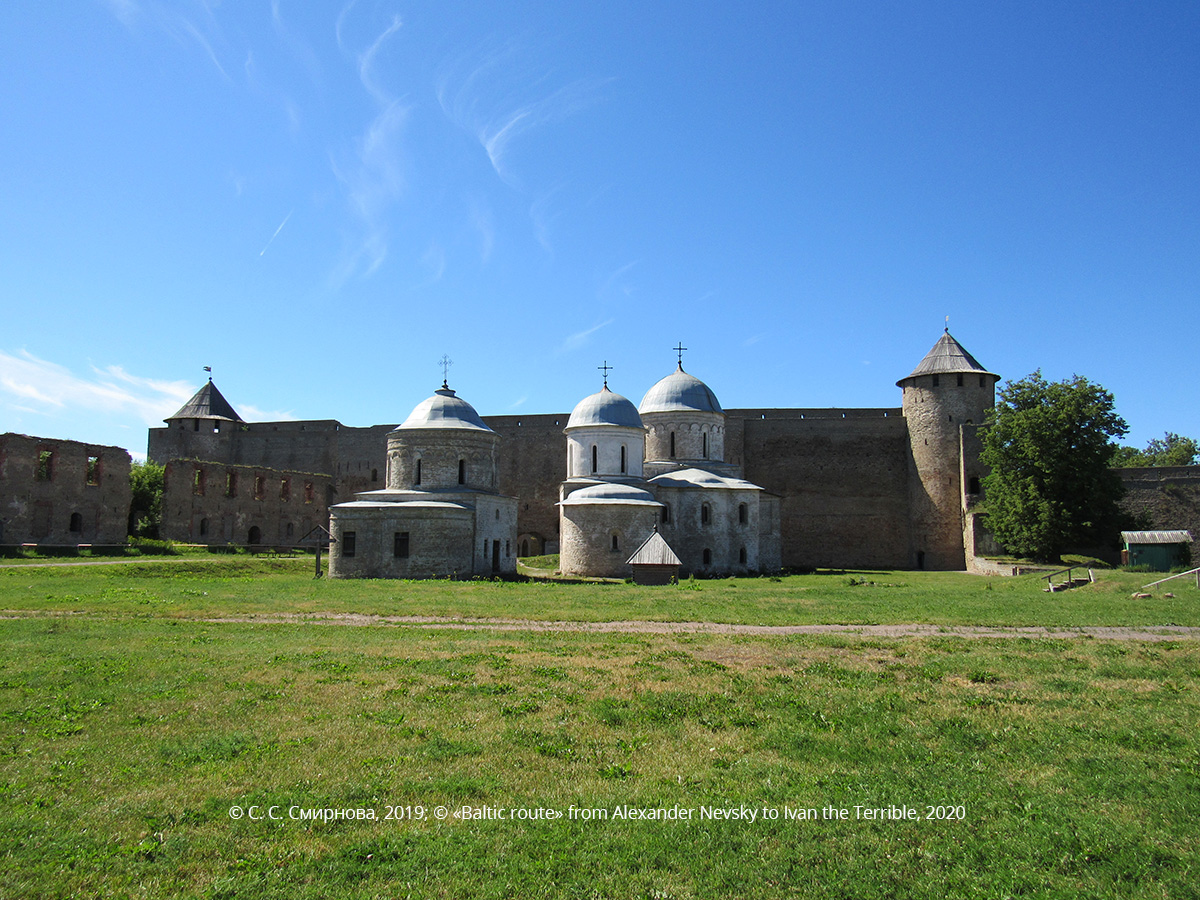
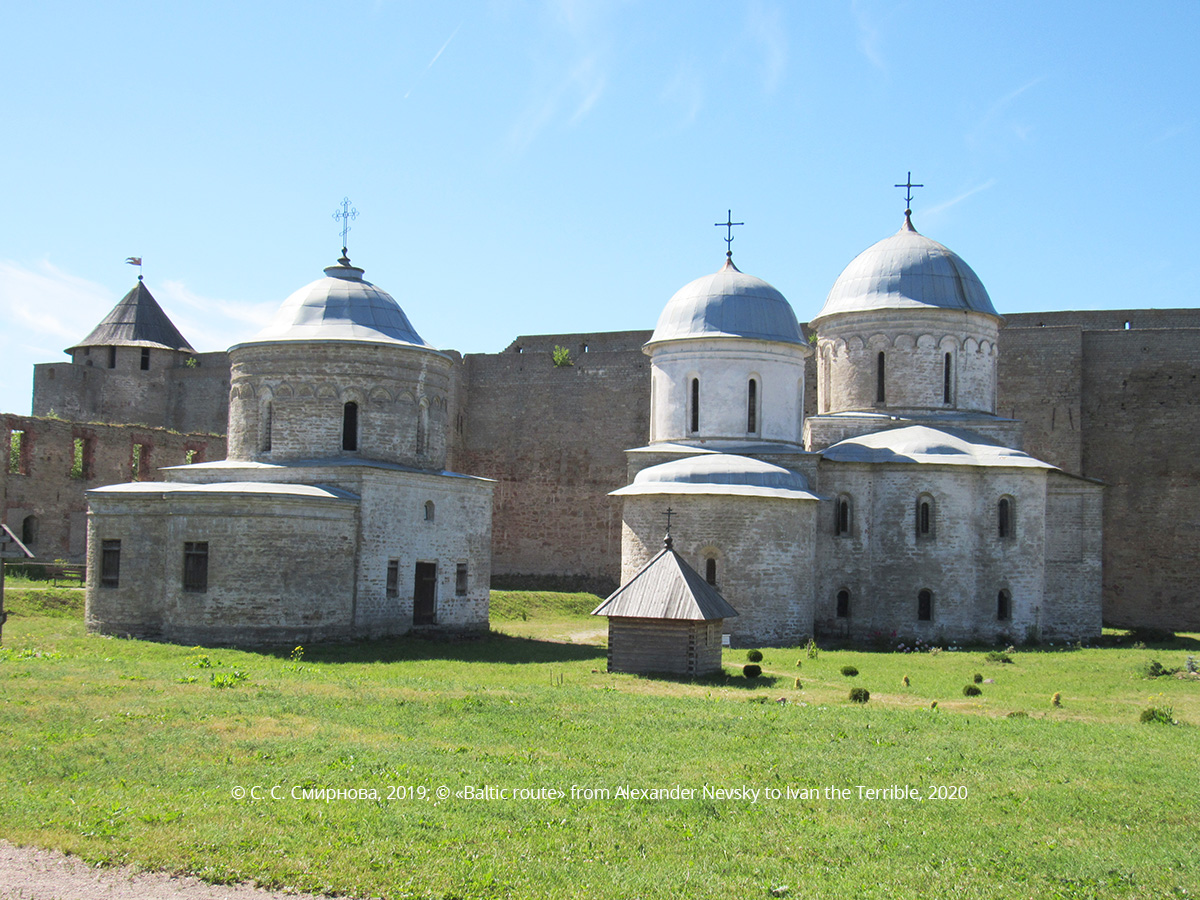
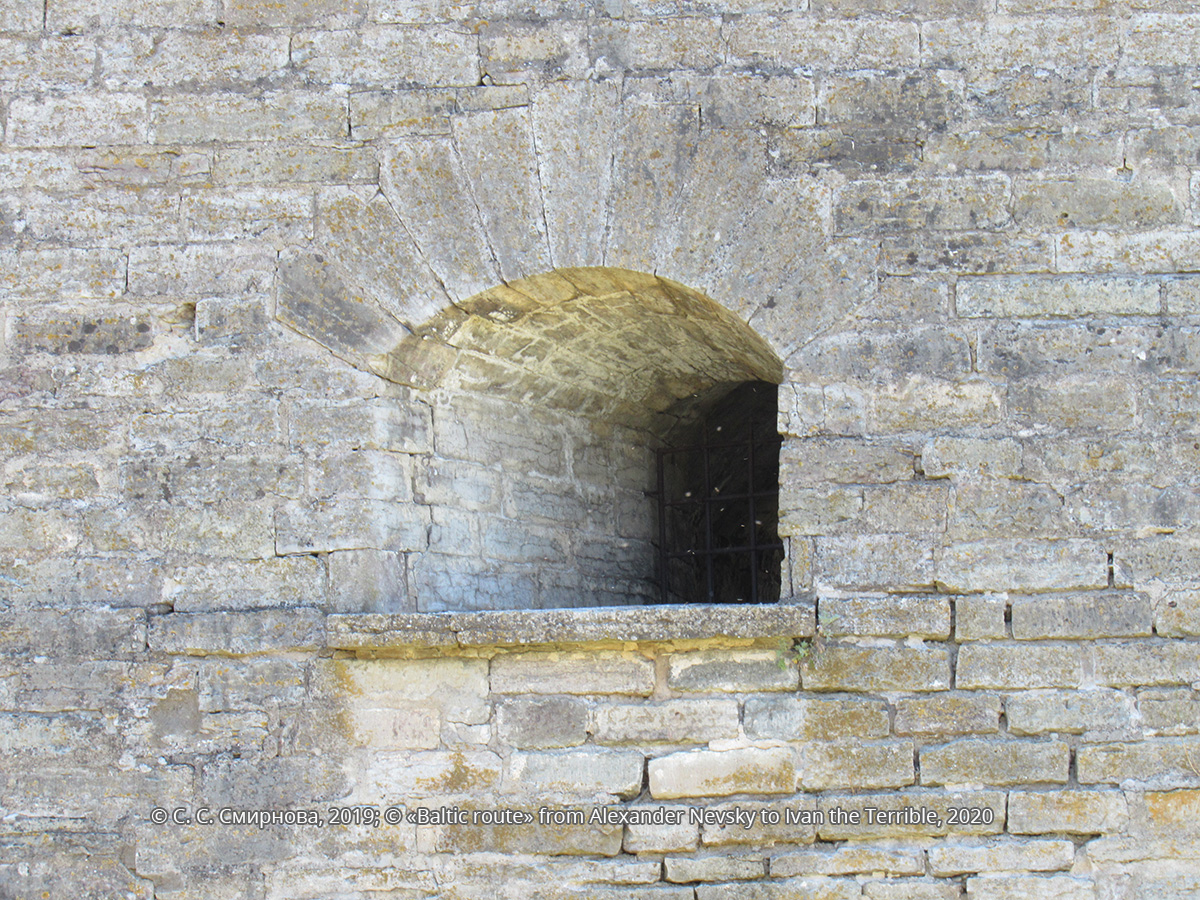
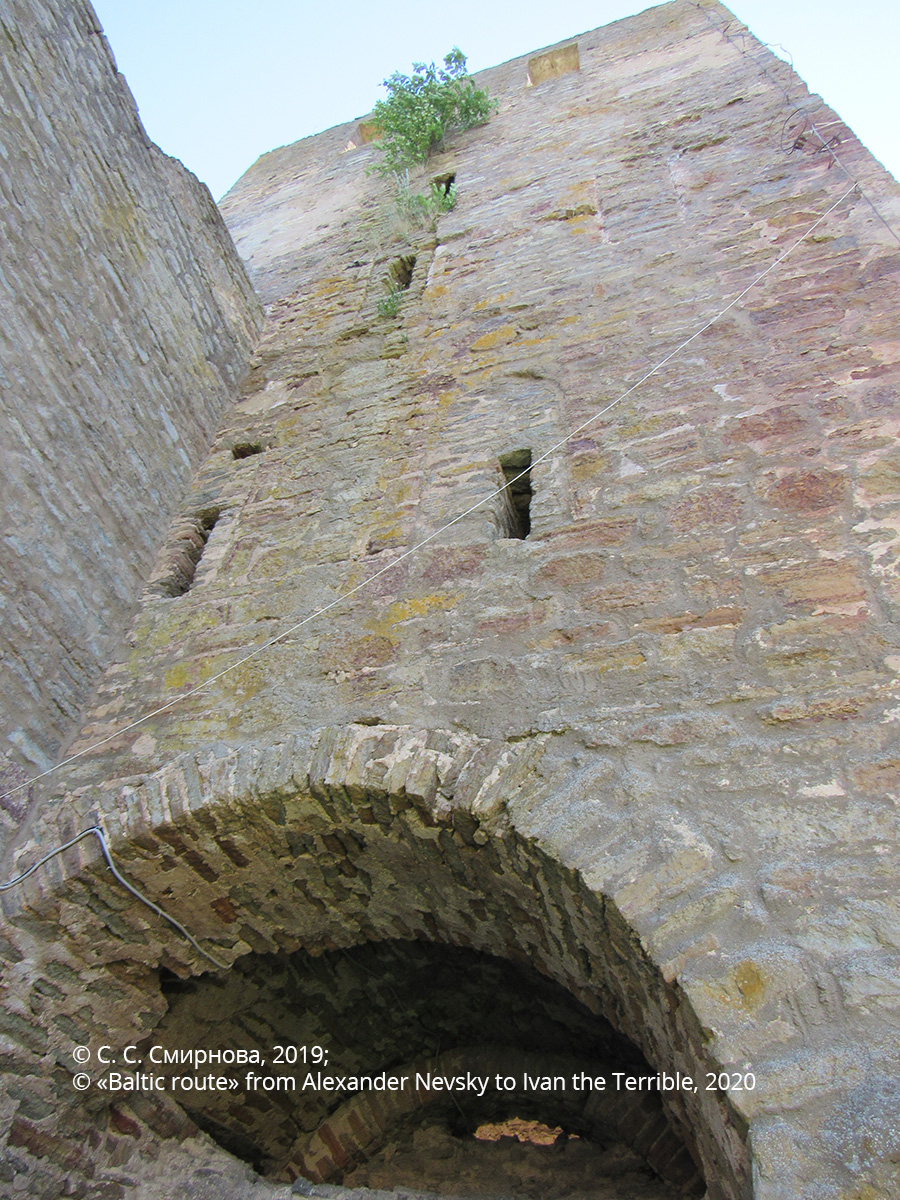
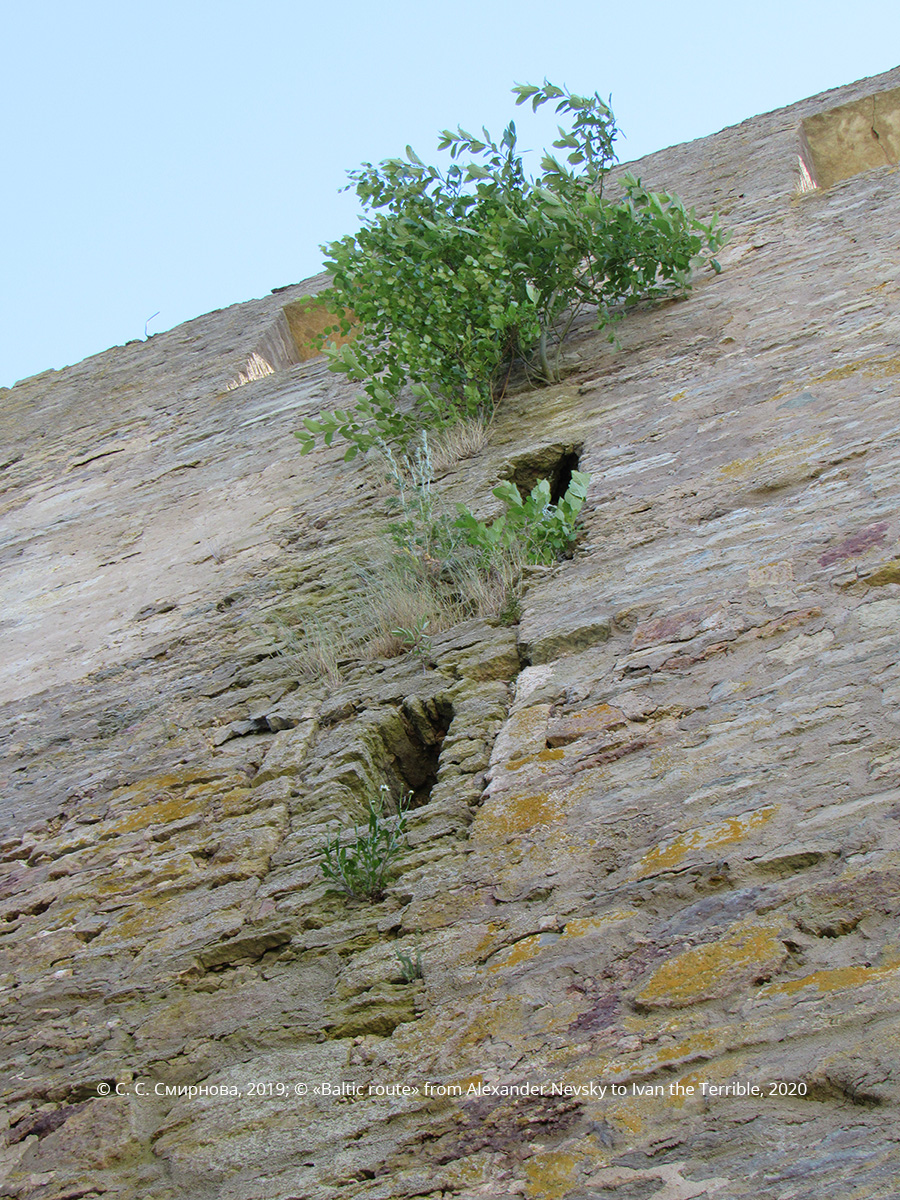
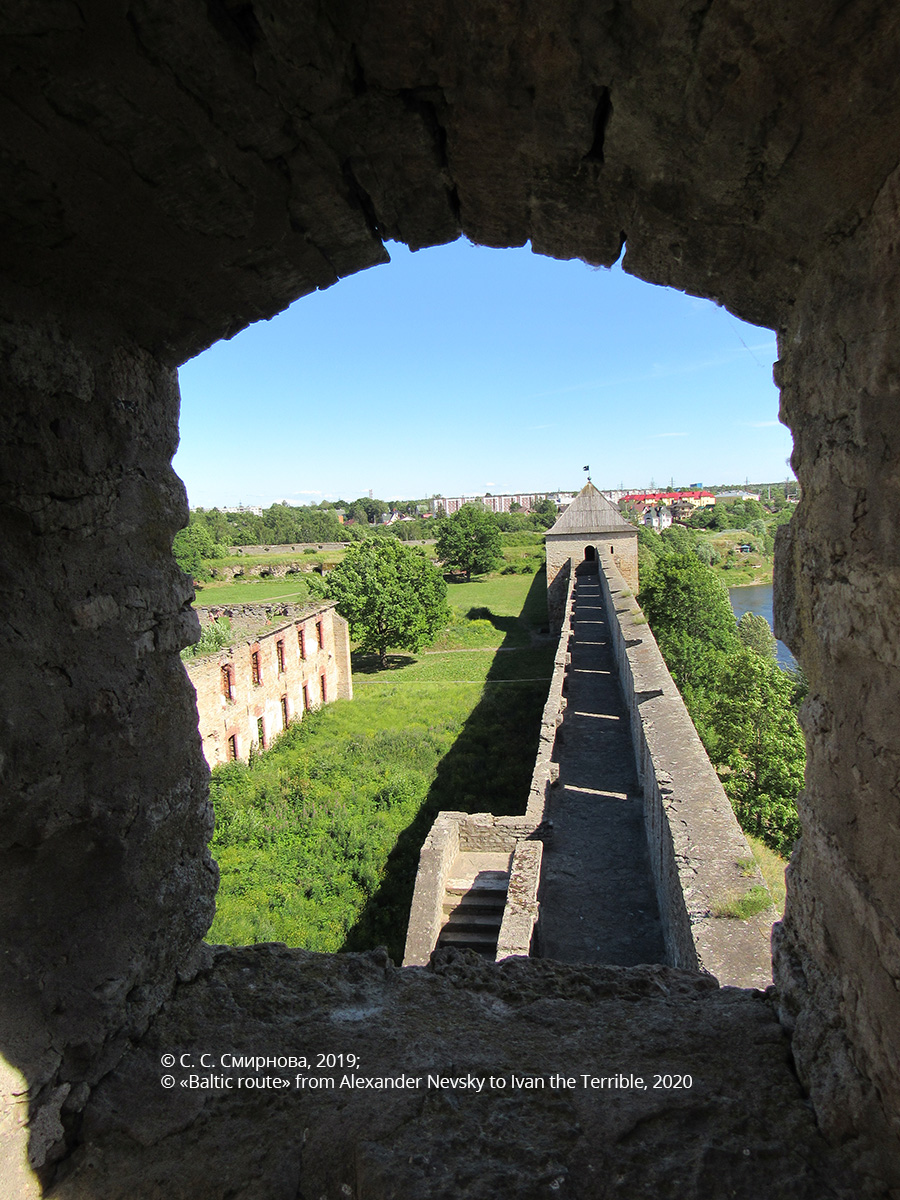
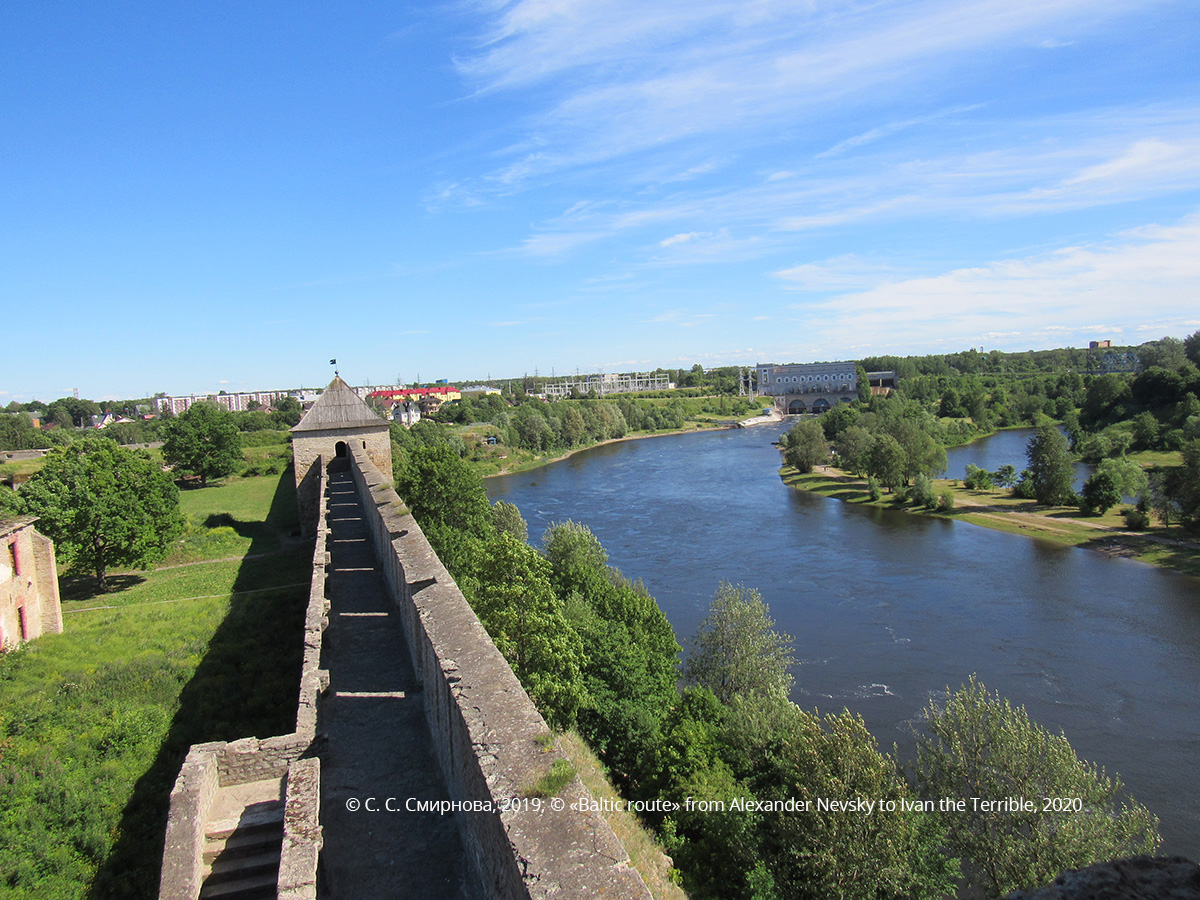
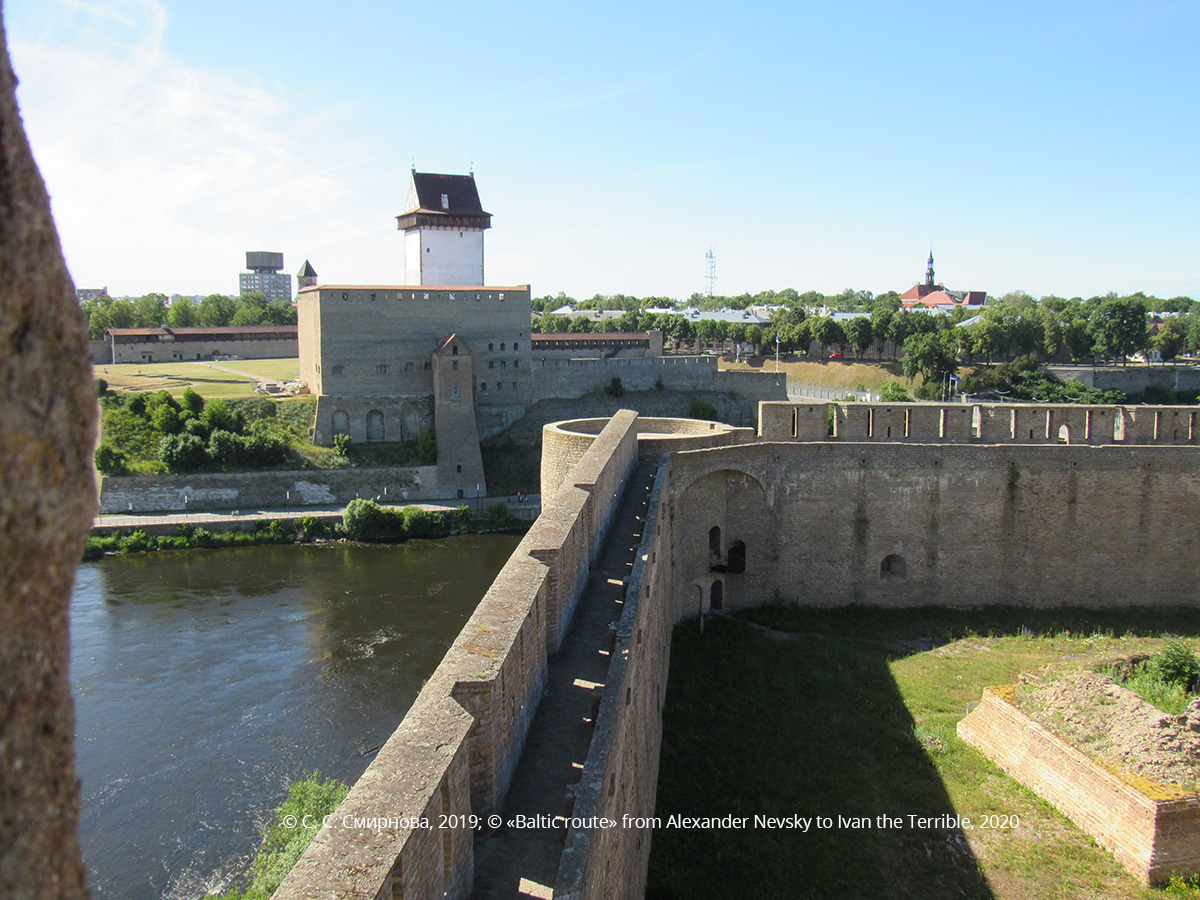
Tags: castles and fortresses, 15 century, 16 century, Novgorodian Land

 English (United Kingdom)
English (United Kingdom)  Russian (Russia)
Russian (Russia) 



























